If you didn't get enough speechifying in chapter ten, well, hold on, chapter eleven is the headline act. Danny Bailey, Youtube sensation and mavericky straight-talker!
Before he hits the stage, Noah is getting the metaphoric tear in his beer on (is that metaphoric or proverbial? Nevermind) at his otherwise empty table by the stage. "He'd briefly considered playing a drinking game with himself, wherein he would pound one back each time he heard one of the dirty words progressive, socialist, or globalism, but by those rules he'd have drunk himself under the table within a few minutes." It's actually an interesting observation, as if Beck is acknowledging just how ridiculous the movement is.
I mean, Socialism? Really? Does anyone truly believe we, as a country, are on the verge of, heading toward, or anywhere remotely near Socialism? Because, let me tell you: We're not. And if you think we are, you have no idea what Socialism is.
Hollis sits down with Noah, because he looked kind of sad, according to the big man. How nice of him. Or maybe Hollis is just keeping an eye on Noah. Nah, if that were the case, Noah would have noticed, what with his "almost supernatural ability to tell when a person is hiding something."
Noah's night goes from bad to worse:
Tonight's headliner, the illustrious Danny Bailey, now took to the stage in a swell of heavy-metal music and an ovation that rattled every shelf of glassware behind the bar.
"Hello, New York!" Bailey shouted, like an aging rock star kicking off his annual farewell tour. He held out the microphone to pump up the roar of the answering crowd and made no move to settle them down. On the contrary, the clamor continued until he produced a piece of paper and took back the mike almost a full deafening minute later.
God damn if people just don't love Youtube stars! Anyway. If you listened to the audio of the speech, you'll already know something about Bailey's speech: It reads better than it it sounds out loud. Which is really saying something. This only goes on for a few pages, and I am going to spoil the end here, because Bailey is interrupted before he can finish. Oh, what thrilling thing happens, you ask? Does Blackwater storm the place? Does the fire marshal shut down the bar? Does America's crumbling infrastructure lead to a sudden power outage? Oh, just you wait. It's even better than all of those ideas!
Bailey continues:
Watch what they name things. If they call something the Patriot Act, you can bet it won't be long before they're using it to hunt down us patriots. If it's called Net Neutrality, it's going to be used to neutralize their enemies. If it's called the Fairness Doctrine, it's meant to un fairly put free speech under government control and create a chilling effect on your First Amendment rights.
That's right, kids, in an Orwellian twist, those bills are all named the opposite of what they really are! The Patriot Act is for rounding up patriots! Net Neutrality is for neutralizing dissenters. (Okay, that's not really an opposite.) The Fairness Doctrine is to unfairly do something to the First Amendment. God damn if Danny Bailey isn't a genius.
Plus, he has lots of paper. Like Beverly before him, Bailey makes his point by dangling papers in front of his audience. He's sort of a patirotic prop comic, but not funny. Like Carrottop.
Blah blah blah... Bailey goes on about unemployment ("almost forty percent if you're a young black man") and prisons ("of all the world's prisoners, we've got twenty-five percent of them right here in this country"), yet fails to make the connection between poverty and crime.
He does however note that the government is hiring Internment and Resettlement Specialists like nobody's business. There's more papers, more factoids, more statistics.
"And here"—he squinted as he read briefly from the document on top of his stack—"United States Air Force Civil Disturbance Plan 55-2 will authorize and direct the secretary of defense to use the U.S. armed forces to restore law and order in the event of a crisis. Under this umbrella plan they ran an exercise in 1984—so you see they do have a sense of humor—and that exercise was called Rex-84. The purpose was to see how efficiently they could pick up and corral all those disobedient Americans on their lists."
Bailey held up document after document as he continued. "What lists, you ask? All kinds of them. The FBI's ADEX list from the late 1960s—ADEX, that stands for Agitator Index—it was full of dangerous intellectuals, union organizers, and people who spoke out against the Vietnam War. Now there's almost a million and a half people on the DHS Terrorist Watch List, and it's growing by twenty thousand names every month.
"Have you registered a firearm? You're on a list! Have you made a political contribution to a third-party candidate? You're on a list! Have you visited my website? You're on a list! Have you given a speech about government lists to a rowdy group of patriots? You're on a list!
So, yeah. Big Brother is watching you, and making lists, and checking them twice (sorry) and you better be careful. They're hiring Internment Specialists to round everyone up. (Not really.) It would seem grim. If you lacked critical thinking skills.
It's interesting how Beck throws out all this random data, never really ties any of it together, not sufficiently anyway. Take that bit about the ADEX from the Sixties. What the fuck does that have to do with the DHS Terrorist Watch List? It is implied there is some connection between the two. But that's all it is. They are mentioned in the same paragraph, so I think we're to infer there is some credence to the plot fifty years in the making. But vague innuendoes aren't facts.
And this is when things start to get personal for Noah.
"Oh, and this just in, thanks to our friends on the Internet—a place where, at least for now, we can track them as easily as they can track us."
Noah felt his face getting hot. In Bailey's hand was a printout of the leaked government memorandum from that afternoon meeting at the office, the one he'd spent his entire morning trying to nullify. It was effectively harmless now, it was a nonissue, and he repeated that to himself, but the smug look coming from the guy onstage had already gotten under his skin.
"... if you speak out against abortion," Bailey continued, reading from the memo, "are a returning veteran, are a defender of the Second Amendment, oppose illegal immigration, are a homeschooler, if you've got a bumper sticker on your car that says 'Chuck Baldwin for President' or, heaven help us, if you're found to be in possession of a copy of the U.S. Constitution, then you good American patriots, you moms and dads and grandmas and grandpas, you guardians of liberty are to be approached with extreme caution and guns at the ready, because you may be a terrorist!"
Whoops! The leak that Doyle and Merchant thought they had fixed? Turns out: Not so much. They better check with HR, make sure no teabaggers are on the payroll. First place to look: The copy room. Or the mail room. Yeah, check the mail room! Also, see if anyone's been hanging up flyers aroung the office. Just a suggestion.
Oh, and about the line "heaven help us, if you're found to be in possession of a copy of the U.S. Constitution..." Wasn't Beverly jsut telling everyone to carry a copy with them at all times? But Bailey says that'll get you "on a list." Which is it? Maybe this is why I don't know what the teabaggers want: They don't know what they want.
There stuff about the Enduring Constitutional Government, Constitution Free Zones, a "continuous state of national emergency" blah blah blah.
"It looks bad, I know it does," Bailey began. "But do you know why we're going to beat them? We're going to beat them because once the truth gets out there'll be no stopping it. When enough people wake up they'll have no choice but to come out of the shadows and fight, and then we've got them. Remember what a great man once told us: First they ignore you—then they ridicule you—then they fight you—"
"And then they win," Noah said.
Uh oh! All eyes on Noah! Then the chapter wraps. Dang, what will happen next? Oh, the thrills! Chapter twelve, here I come!
Oh, and if anyone can guess what happens in chapter twelve, you get a prize.
 In my mind, Danny is played by
In my mind, Danny is played by 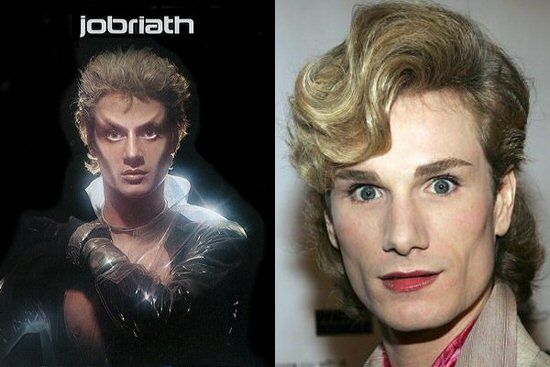

 This DVD lied to me. The menu flashed this tag line across the screen: "100 Trapped Passengers… 3,000 Venomous Vipers!" (See left.) Neither of those things turned out to be true. Look, if we're on a date, and you want to lie to me ("No, I'm not married, of course not!"), that's one thing. But don't tell me I'm in for 3,000 deadly snakes and fail to deliver. That, my friend, is just bullshit.
This DVD lied to me. The menu flashed this tag line across the screen: "100 Trapped Passengers… 3,000 Venomous Vipers!" (See left.) Neither of those things turned out to be true. Look, if we're on a date, and you want to lie to me ("No, I'm not married, of course not!"), that's one thing. But don't tell me I'm in for 3,000 deadly snakes and fail to deliver. That, my friend, is just bullshit. 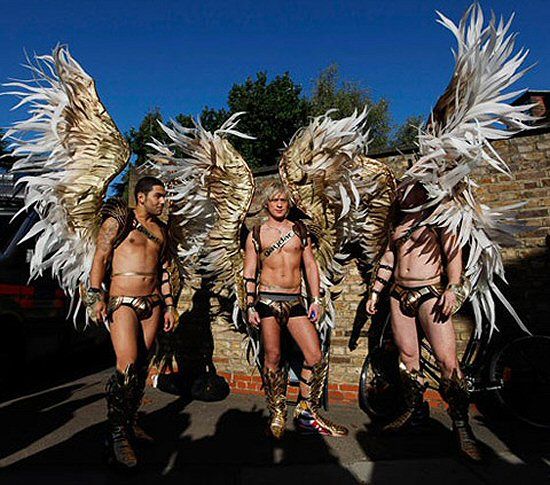
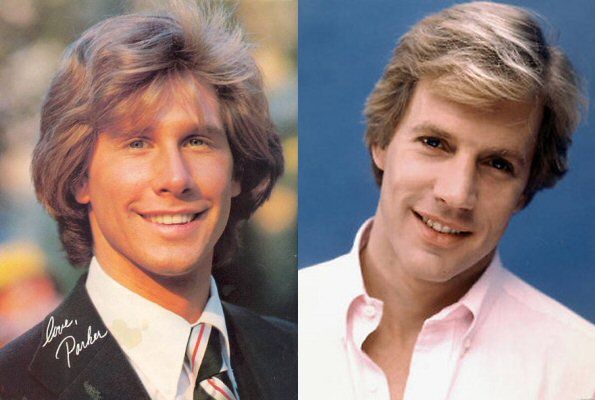
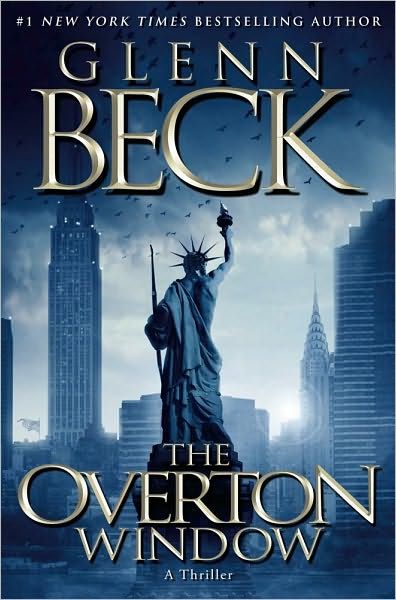



























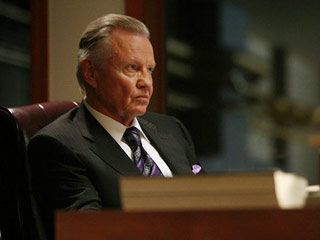 Chapter three opens with Arthur Gardner reading a classified memo titled "Constitutionalists, Extremism, the Militia Movement, and the Growing Threat of Domestic Terrorism." The memo lists groups of fringe elements that the government needs to keep an eye on. Mostly Beck's target audience: "Militant anti-abortion or 'pro-life' organizers, anti-immigration, border defenders, 'Tea Parties', third-party political campaigns, Libertarian Party, Constitution Party, tax resisters, 'End the Fed' proponents, gun rights activists." Then some more ... frightening ... elements are thrown in. "Christian Identity, White Nationalists, American Nazi Party, Holocaust denier, hate radio/TV/Web/print."
Chapter three opens with Arthur Gardner reading a classified memo titled "Constitutionalists, Extremism, the Militia Movement, and the Growing Threat of Domestic Terrorism." The memo lists groups of fringe elements that the government needs to keep an eye on. Mostly Beck's target audience: "Militant anti-abortion or 'pro-life' organizers, anti-immigration, border defenders, 'Tea Parties', third-party political campaigns, Libertarian Party, Constitution Party, tax resisters, 'End the Fed' proponents, gun rights activists." Then some more ... frightening ... elements are thrown in. "Christian Identity, White Nationalists, American Nazi Party, Holocaust denier, hate radio/TV/Web/print."